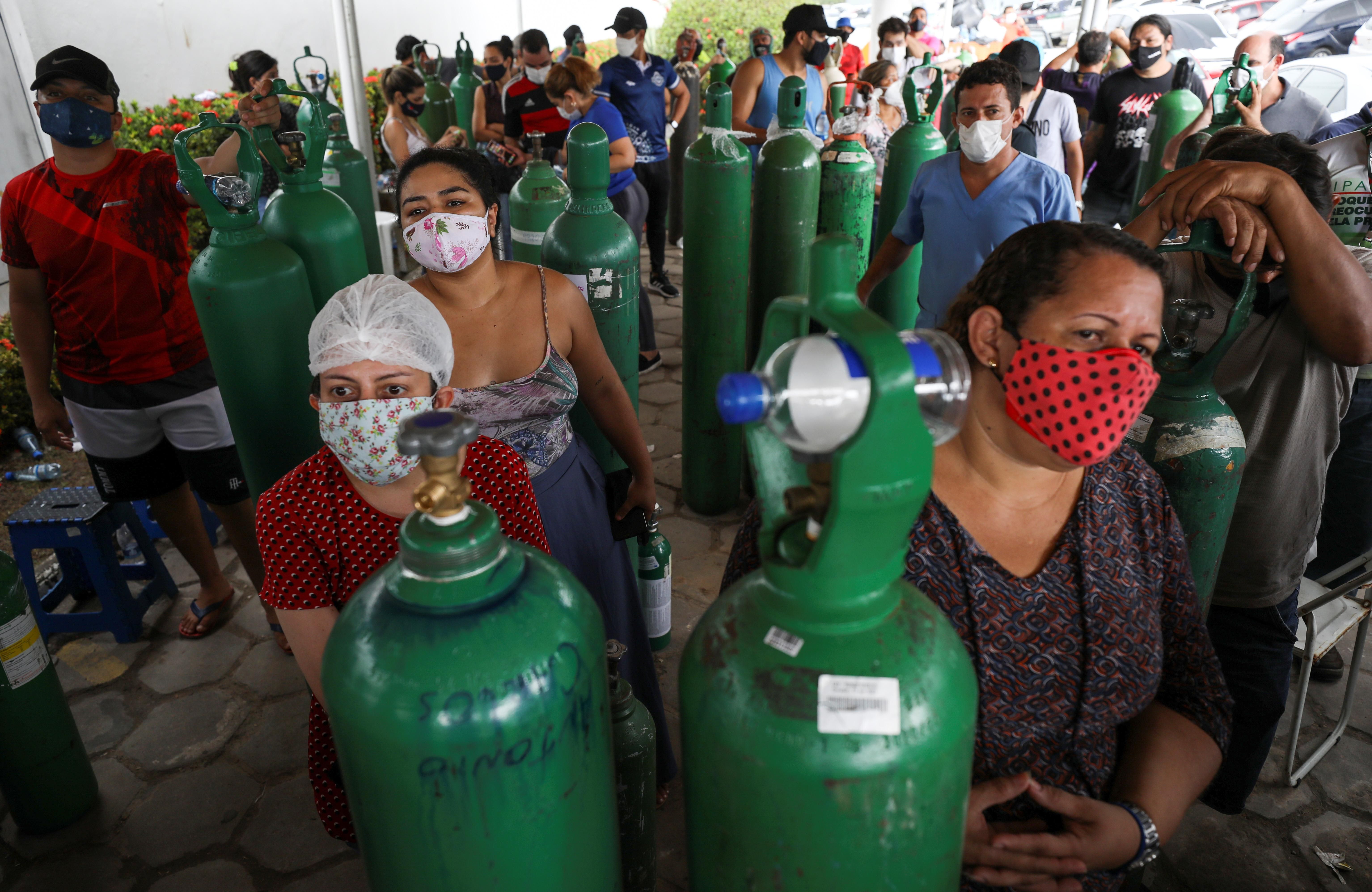Hard Numbers: Oxygen for Brazil, German succession, Wine loses in Uganda, Thai royal punishment
14,000: Cash-strapped Venezuela has sent enough oxygen to fill 14,000 individual canisters to its more prosperous neighbor Brazil, which is suffering a shortage of oxygen supplies for COVID patients in hard-hit Amazonas state. In response, right-wing Brazilian President Jair Bolsonaro said Venezuela's socialist leader Nicolás Maduro should be dispatching emergency supplies to needy Venezuelans.
521: Centrist politician Armin Laschet was elected the new leader of Germany's ruling center-right CDU party, defeating two rivals with a total 521 votes. Laschet is now favored to succeed outgoing Chancellor Angela Merkel when she steps down in September, but the party may still pick another candidate for chancellor at its next meeting in April.
34: Ugandan opposition leader Bobi Wine's party won 34 percent of ballots cast in last week's presidential election — not enough to unseat long-serving President Yoweri Museveni, who got 58 percent of the vote. The campaign was defined by violence and chaos: authorities arrested and assaulted Wine in the lead-up to the vote, and shot at protesters who supported him. Wine now claims the government rigged the vote, and plans to challenge the outcome in the courts.
43: A Thai woman was sentenced to 43 years in prison for sharing on social media audio clips deemed critical of the royal family. It's the longest sentence ever handed down for violating Thailand's draconian law that makes it illegal to defame the king or his family, and comes as the once-untouchable monarchy faces increasing pressure to curb its powers from a youth-led protest movement.
